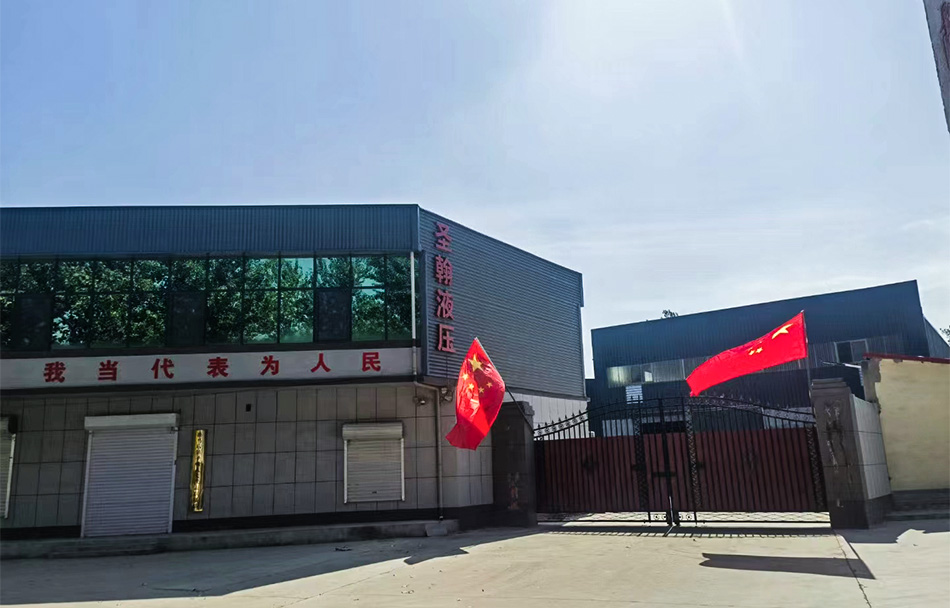Nov . 22, 2024 04:50 Back to list
oil hydraulic cylinder products
The Importance of Oil Hydraulic Cylinder Products in Modern Industries
Oil hydraulic cylinders are pivotal components in various industrial applications, ranging from manufacturing to construction and agriculture. These robust devices convert hydraulic energy into mechanical energy, making them essential for lifting, pushing, pulling, and manipulating heavy loads with precision. As industries evolve, the demand for reliable and efficient hydraulic cylinders continues to grow, emphasizing the importance of understanding their design, functionality, and applications.
What are Oil Hydraulic Cylinders?
An oil hydraulic cylinder is a mechanical actuator that uses pressurized hydraulic fluid to create linear motion. At its core, a hydraulic cylinder comprises a cylinder barrel, a piston, and connecting rods. When hydraulic oil is pumped into the cylinder, it generates pressure that pushes the piston, resulting in movement. This mechanism allows for the exertion of significant force, which is particularly advantageous in operations that require lifting heavy weights or performing arduous tasks.
Design and Functionality
Hydraulic cylinders come in various designs, tailored to meet specific operational requirements. Key aspects of their design include the type of seals used, the materials for construction, and the overall configuration of the cylinder. Common types of hydraulic cylinders include
1. Double-acting cylinders – These cylinders can exert force in both extension and retraction directions, making them versatile for numerous applications. 2. Single-acting cylinders – These cylinders only apply force in one direction, relying on external forces or springs for retraction. 3. Telescopic cylinders – These extend in stages, offering significant stroke length in confined spaces, often used in truck-mounted cranes and lift applications.
The functionality of hydraulic cylinders hinges on key principles of hydraulics, particularly Pascal's Law, which states that pressure applied to a confined fluid is transmitted undiminished in all directions. This characteristic allows even small hydraulic systems to produce substantial force, enabling efficient operations in environments where brute strength is often impractical.
Applications Across Industries
The applicability of oil hydraulic cylinders is vast, penetrating nearly every industrial sector. Here are a few examples
oil hydraulic cylinder products

- Construction Hydraulic cylinders play a crucial role in heavy equipment like excavators, bulldozers, and cranes, facilitating tasks such as lifting loads, digging trenches, and moving earth
. Their ability to generate high power-to-weight ratios makes them ideal for construction equipment that must perform in challenging environments.- Manufacturing In manufacturing, hydraulic cylinders are integral to presses, forklifts, and automated assembly lines. They provide the force needed to shape materials, move products, and automate labor-intensive processes, enhancing productivity and efficiency in the production line.
- Agriculture Hydraulic cylinders are used extensively in agricultural machinery, such as tractors and combines. They assist in tasks involving plowing, harvesting, and lifting, thereby increasing the efficiency of farming operations and reducing labor costs.
- Automotive In the automotive industry, hydraulic cylinders can be found in car lifts and various assembly processes. Their reliability and strength allow for safe and effective handling of heavy vehicle parts.
Maintenance and Care
While oil hydraulic cylinders are engineered for durability, regular maintenance is essential to ensure optimal performance and longevity. Basic maintenance practices include
- Regular inspection Checking for leaks, wear, or damage to the seals and cylinder components can prevent catastrophic failures. - Fluid quality Monitoring the quality of hydraulic fluid is critical, as contaminated fluid can lead to pump wear and cylinder damage. - Proper storage Hydraulic cylinders should be stored in environments free from extreme temperatures and contaminants, which can degrade their performance over time.
Conclusion
In conclusion, oil hydraulic cylinder products are indispensable in today's industrial landscape. Their capability to generate significant force through efficient hydraulic mechanisms makes them crucial for various applications. As industries continue to innovate and evolve, the demand for high-quality hydraulic cylinders will remain strong. Understanding their design, applications, and maintenance is key to maximizing their performance and ensuring safety in operations. As technology progresses, we can expect advancements in hydraulic systems that will further enhance the operational capabilities and efficiencies across multiple sectors.
-
Fork Lift Power Units - Hebei Shenghan | Efficiency, Reliability
NewsJul.13,2025
-
1.5-Ton Turbocharged Cylinder-Hebei Shenghan|Hydraulic Solution,Energy Efficiency
NewsJul.13,2025
-
Auto Hoist Power Units-Hebei Shenghan|Efficiency&Industrial Lifting
NewsJul.13,2025
-
Double Acting Power Units-Hebei Shenghan|Hydraulic Solutions,Industrial Efficiency
NewsJul.13,2025
-
1.5 Ton Lifting Cylinder 70/82-40-290-535 - High-Performance Hydraulic Solution | Hebei Shenghan
NewsJul.13,2025
-
Fork Lift Power Units - Hebei Shenghan | Efficiency&Reliability
NewsJul.13,2025
